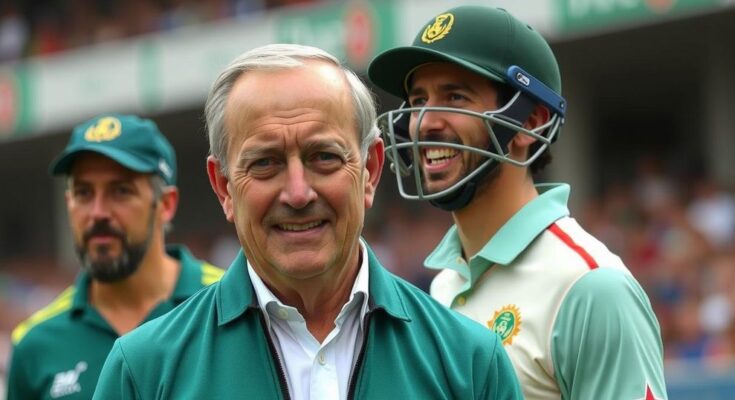Baroness Foster urges the England cricket team to boycott a match against Afghanistan due to the Taliban’s oppression of women, garnering support from over 160 parliamentarians. The ECB has not yet committed to a boycott but recognizes the seriousness of the issues raised, advocating for a coordinated international response instead.
Baroness Foster, the former First Minister of Northern Ireland, has advocated for a boycott of the England men’s cricket team against Afghanistan, citing human rights violations under the Taliban regime, particularly against women. Along with six MPs and peers from Northern Ireland, she joins over 160 parliamentarians in calling for decisive action against the oppression women face in the country since the Taliban regained control in 2021. The England and Wales Cricket Board (ECB) has acknowledged the concerns raised but has not yet committed to a boycott.
Scheduled to play Afghanistan in the Cricket Champions Trophy on February 26, some UK politicians, including Labour MP Tonia Antoniazzi, implore the team to refuse to participate to highlight the ongoing repression. A letter addressed to the ECB argues that this boycott would deliver a powerful message against the ongoing abuses of women’s rights. Notably, members of the Afghan women’s cricket team have fled and are now in exile due to the Taliban’s repressive actions.
Baroness Foster expressed her determination to raise awareness about the dire situation for women in Afghanistan, stating, “The actions of the regime in Afghanistan absolutely mark the country out as a rogue nation, especially in relation to their continuing repression of women.” In further support, SDLP MP Claire Hanna remarked on the direct intersection of sport and politics in Afghanistan, calling the imposition of restrictions a profoundly political decision.
Despite the call for a boycott, ECB Chief Executive Richard Gould has emphasized the importance of a coordinated approach through the International Cricket Council (ICC) to address the rights of women and girls in Afghanistan more effectively.
The support for a boycott extends beyond Northern Irish representatives, including well-known figures such as former Labour leaders Jeremy Corbyn and Lord Kinnock, highlighting the widespread concern regarding the plight of Afghan women within the arena of sport.
As the situation unfolds, the ECB faces pressure to take a definitive stance and consider the significant implications of playing against a regime that continues to systematically violate fundamental human rights.
Since the Taliban took control of Afghanistan in August 2021, the rights of women and girls have dramatically deteriorated, leading to widespread condemnation from the international community. Women have faced significant restrictions, including bans from education, public life, and employment, which has extended to sports. Various sporting organizations and advocates have increasingly pushed for a boycott of events in response to these human rights abuses, seeking to leverage international visibility to advocate for change and express solidarity with oppressed populations.
In summary, the growing call for a boycott of the England cricket match against Afghanistan underscores significant concerns regarding human rights violations under Taliban rule, particularly relating to the oppression of women. With strong support from Northern Irish politicians and concerns voiced by the ECB, the matter highlights the intersection of sport and human rights, as advocates seek to use the platform of athletics to promote social justice and solidarity with those suffering injustices.
Original Source: www.bbc.com




